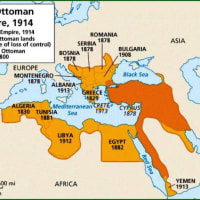The Mind-set Matters
Foreign policy is shaped by leaders and events, not lobbies.
By Dennis Ross
John Mearsheimer and Stephen Walt are troubled by the power and influence of the Israel lobby in Washington. The tone and argument of their essay in this magazine is more reasoned than their original working paper, but it suffers from the same flawed premise: U.S. foreign policy in the Middle East is distorted by this seemingly all-powerful lobby.
According to Mearsheimer and Walt, the Israel lobby is governed by its concern for Israel, not America. They say it drove the United States into a disastrous war in Iraq and is now pushing for a similarly dangerous war against Iran.
Mearsheimer and Walt discuss other maladies caused by the lobby, but it's their concern about U.S. policies toward Iraq and Iran that have principally motivated them to “expose” the lobby.
No one questions the propriety of debating our policy choices in Iraq, Iran, or anywhere else. But such debates should be based on reality. To say that the Israel lobby is largely responsible for the U.S. invasion of Iraq presumes that elected leaders, their worldviews, and extraordinary events such as those on Sept. 11, 2001, don't matter. Mearsheimer and Walt should know better.
Regardless of their position on the war in Iraq, do they seriously doubt that the mind-set of the man sitting in the Oval Office made a big difference? Al Gore was against going to war in 2002 and 2003. Yet, Al Gore was closer to leaders of the “Israel lobby” throughout his career than was President George W. Bush.
The reality is, neither the Israel lobby nor neoconservatives convinced Bush to go to war. September 11 did. Prior to 9/11, Bush's Iraq policy was one of “smart sanctions”—the containment of the Iraqi regime, not its overthrow. His worldview changed on 9/11. He came to believe that America could not wait to be hit again, and that the threat Saddam Hussein posed was all encompassing.
This belief transformed his policies. Although Mearsheimer and Walt now acknowledge that “war would probably not have occurred absent the Sept. 11, 2001, terrorist attacks,” they still persist in declaring that they “believe the United States would not have attacked Iraq without [the Israel lobby's] efforts.” They may want to resolve this contradiction.
Mearsheimer and Walt's thinking on Iran is similarly confused. Do they really believe that only “the lobby” cares about Iran's acquiring nuclear weapons? They say that the United States need not be concerned about Iranian nukes because deterrence will work. This idea ignores the possibility that Iran's going nuclear will trigger others in the Middle East to do the same, and that the prospects of atomic miscalculation could make a nuclear war in the region a real possibility. A nuclear Iran could also fatally undercut the nonproliferation regime, which would make the world more dangerous. The British, French, and Germans—none of whom are anxious for war—understand these realities. That is why they introduced a U.N. Security Council resolution to prevent Iran from going nuclear. It isn't the Israel lobby that is pushing the British, French, and Germans to confront Iran any more than it is the Israel lobby that is driving U.S. policy.
The truth is, the Israel lobby doesn't always get its way. It failed to prevent several major arms sales to Arab nations. It has failed to get the U.S. embassy in Israel moved from Tel Aviv to Jerusalem. It failed to prevent the Clinton administration from crafting a peace proposal that would have divided Jerusalem in two. In fact, never in the time that I led the American negotiations on the Middle East peace process did we take a step because “the lobby” wanted us to. Nor did we shy away from one because “the lobby” opposed it. That is not to say that AIPAC and others have no influence. They do. But they don't distort U.S. policy or undermine American interests. Republican and Democratic presidents alike have consistently believed in a special relationship with Israel because values matter in foreign policy. Policymakers know that, even if Mearsheimer and Walt do not.
Dennis Ross is distinguished fellow at the Washington Institute for Near East Policy and author of The Missing Peace: The Inside Story of the Fight for Middle East Peace (New York: Farrar, Straus and Giroux, 2004). He was the chief U.S. diplomat in charge of Middle East peace under Presidents George H.W. Bush and Bill Clinton.
http://www.foreignpolicy.com/story/cms.php?story_id=3508
http://www.keepmedia.com/pubs/ForeignPolicy/2006/07/01/1633937?page=2&emaId=
●According to his book, Ross was raised in Marin County, California by his Jewish mother and Catholic stepfather, who maintained a non-religious household atmosphere.
http://en.wikipedia.org/wiki/Dennis_Ross
Foreign policy is shaped by leaders and events, not lobbies.
By Dennis Ross
John Mearsheimer and Stephen Walt are troubled by the power and influence of the Israel lobby in Washington. The tone and argument of their essay in this magazine is more reasoned than their original working paper, but it suffers from the same flawed premise: U.S. foreign policy in the Middle East is distorted by this seemingly all-powerful lobby.
According to Mearsheimer and Walt, the Israel lobby is governed by its concern for Israel, not America. They say it drove the United States into a disastrous war in Iraq and is now pushing for a similarly dangerous war against Iran.
Mearsheimer and Walt discuss other maladies caused by the lobby, but it's their concern about U.S. policies toward Iraq and Iran that have principally motivated them to “expose” the lobby.
No one questions the propriety of debating our policy choices in Iraq, Iran, or anywhere else. But such debates should be based on reality. To say that the Israel lobby is largely responsible for the U.S. invasion of Iraq presumes that elected leaders, their worldviews, and extraordinary events such as those on Sept. 11, 2001, don't matter. Mearsheimer and Walt should know better.
Regardless of their position on the war in Iraq, do they seriously doubt that the mind-set of the man sitting in the Oval Office made a big difference? Al Gore was against going to war in 2002 and 2003. Yet, Al Gore was closer to leaders of the “Israel lobby” throughout his career than was President George W. Bush.
The reality is, neither the Israel lobby nor neoconservatives convinced Bush to go to war. September 11 did. Prior to 9/11, Bush's Iraq policy was one of “smart sanctions”—the containment of the Iraqi regime, not its overthrow. His worldview changed on 9/11. He came to believe that America could not wait to be hit again, and that the threat Saddam Hussein posed was all encompassing.
This belief transformed his policies. Although Mearsheimer and Walt now acknowledge that “war would probably not have occurred absent the Sept. 11, 2001, terrorist attacks,” they still persist in declaring that they “believe the United States would not have attacked Iraq without [the Israel lobby's] efforts.” They may want to resolve this contradiction.
Mearsheimer and Walt's thinking on Iran is similarly confused. Do they really believe that only “the lobby” cares about Iran's acquiring nuclear weapons? They say that the United States need not be concerned about Iranian nukes because deterrence will work. This idea ignores the possibility that Iran's going nuclear will trigger others in the Middle East to do the same, and that the prospects of atomic miscalculation could make a nuclear war in the region a real possibility. A nuclear Iran could also fatally undercut the nonproliferation regime, which would make the world more dangerous. The British, French, and Germans—none of whom are anxious for war—understand these realities. That is why they introduced a U.N. Security Council resolution to prevent Iran from going nuclear. It isn't the Israel lobby that is pushing the British, French, and Germans to confront Iran any more than it is the Israel lobby that is driving U.S. policy.
The truth is, the Israel lobby doesn't always get its way. It failed to prevent several major arms sales to Arab nations. It has failed to get the U.S. embassy in Israel moved from Tel Aviv to Jerusalem. It failed to prevent the Clinton administration from crafting a peace proposal that would have divided Jerusalem in two. In fact, never in the time that I led the American negotiations on the Middle East peace process did we take a step because “the lobby” wanted us to. Nor did we shy away from one because “the lobby” opposed it. That is not to say that AIPAC and others have no influence. They do. But they don't distort U.S. policy or undermine American interests. Republican and Democratic presidents alike have consistently believed in a special relationship with Israel because values matter in foreign policy. Policymakers know that, even if Mearsheimer and Walt do not.
Dennis Ross is distinguished fellow at the Washington Institute for Near East Policy and author of The Missing Peace: The Inside Story of the Fight for Middle East Peace (New York: Farrar, Straus and Giroux, 2004). He was the chief U.S. diplomat in charge of Middle East peace under Presidents George H.W. Bush and Bill Clinton.
http://www.foreignpolicy.com/story/cms.php?story_id=3508
http://www.keepmedia.com/pubs/ForeignPolicy/2006/07/01/1633937?page=2&emaId=
●According to his book, Ross was raised in Marin County, California by his Jewish mother and Catholic stepfather, who maintained a non-religious household atmosphere.
http://en.wikipedia.org/wiki/Dennis_Ross




























※コメント投稿者のブログIDはブログ作成者のみに通知されます